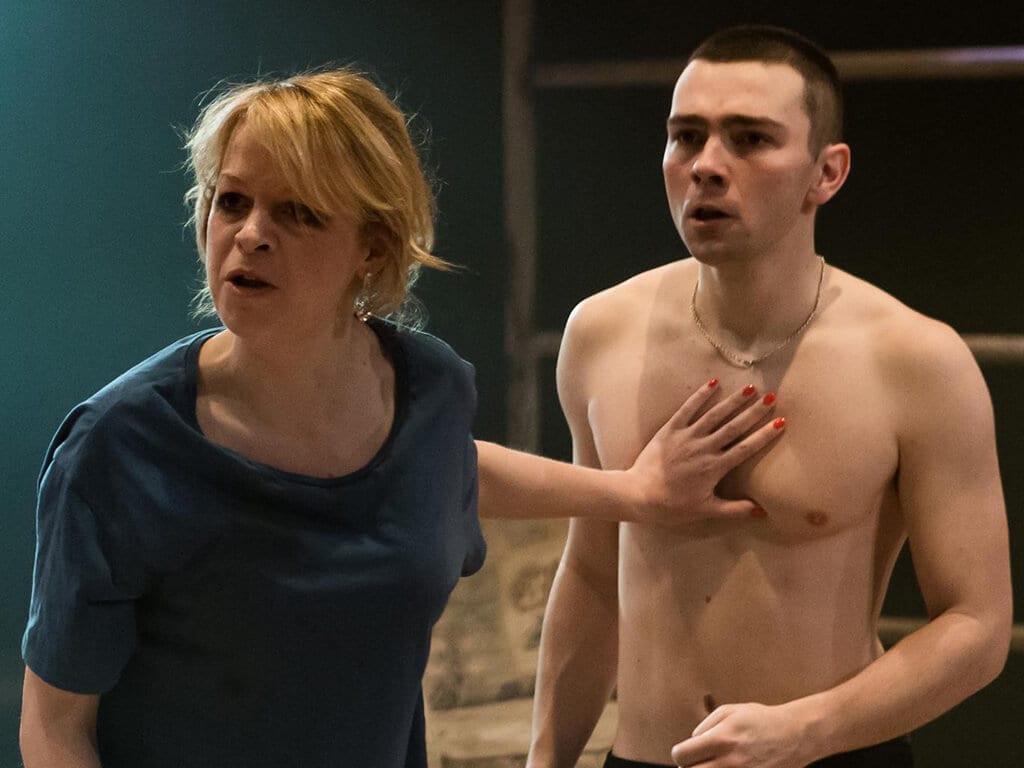Yen tells the story of two teenage brothers from Feltham, beyond the reach of social services and dependent on their absent, alcoholic mother. They live in a kind of bubble – mostly staying indoors, playing Playstation, fighting and watching porn. They also live in extreme poverty – owning one shirt between them, and shoplifting to stay alive. Everything changes when their next-door neighbour Jenny (nicknamed Yen by her dad) knocks on their door – opening their eyes to the world outside, and creating fresh divisions.
It’s a deeply sympathetic and intelligent play that leaves the audience both moved and conflicted: won over by Bobbie’s innate charm and Hench’s quiet sensitivity, and then challenged by their casual racism, misogyny and violence. Playwright Anna Jordan forces us to understand and empathise with a social group who dominate our prisons and young offenders’ institutes, but who for understandable reasons it’s unfashionable to take an interest in (let alone to defend): white, unemployed young men.
Without condescension, and without indulging in (too much) suspect self-improvement discourse, Jordan exposes the vulnerability of these two boys – demonstrating their need for affection, anxieties about sex, and worries about how others see them (especially their mum). Yen is a lesson in how people with gentle natures can be led to behave in the most sickening ways when made to feel inadequate and unloved.
Ned Bennett’s production is excellent. In general there is an emphasis on truthfulness rather than overt display: the relationships evolve in an understated way, and we’re never patronised with the flagging of key moments or character declarations. Alex Austin and Jake Davies need to be bottled and preserved. There’s a weird aura about them, but one that doesn’t stop their performances from feeling natural and believable. Annes Elwy and Sian Breckin are equally good.
My one criticism is that the final fifteen minutes are a bit slow. Also, suspending the release of information about the nature of Bobbie’s attack feels like a narrative gimmick (though I’m sure it isn’t intended that way), and is a bit sensational – in a play that is otherwise devoid of both features.
But these issues are tiny. It’s the best play I’ve seen at the Court in a while.



